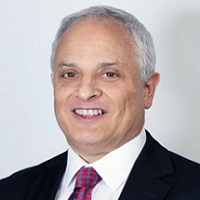 By Jeff Robbins, CEO, LiveData
By Jeff Robbins, CEO, LiveData
LinkedIn: Jeffrey (Jeff) Robbins
LinkedIn: LiveData, Inc.
Healthcare institutions have found themselves compelled to achieve greater efficiency amid financial constraints. Simultaneously, healthcare leaders acknowledge prioritizing patient-centered care and staff contentment. The following three healthcare technology concepts underscore the transformative impact of generative AI, interoperability, and advanced operational systems on enhancing the experience for healthcare professionals and patients alike.
The Unstoppable Momentum of the GenAI in Healthcare
The evolution of AI and machine learning technologies is persisting and expanding deeper into diverse healthcare domains. From diagnostics and personalized treatment plans to streamlining administrative tasks like billing and scheduling, AI-driven tools will enhance processes and improve patient outcomes. Today’s more reliable real-time data collection tools will alleviate the burden on overworked healthcare teams and reduce reliance on memory. Data governance will be scrutinized as progress accelerates, particularly regarding HIPAA protected health information. Under this intensified focus, vendors are poised to introduce solutions to safeguard sensitive healthcare data.
Forging Alliances with Health-Tech Collaborations
The ongoing collaboration between hospitals, healthcare systems, and tech companies will accelerate in pursuing innovative solutions to enhance workflows and patient safety. Centered on bolstering interoperability across diverse systems, these solutions facilitate real-time data sharing and seamless integration with electronic health records and other healthcare technologies. The primary focus is cultivating a connected healthcare ecosystem that boosts efficiency, accuracy, and patient care, while alleviating administrative burdens on healthcare professionals.
Efficient Operations Through Advanced Surgical Scheduling
More and more hospitals are beginning to embrace bidirectional scheduling systems to facilitate communication between surgeon offices and surgical schedulers. These integrated platforms will empower clinic schedulers with streamlined access, minimizing the need for antiquated communication and extensive keystrokes within a patient’s electronic health record. With a steadfast commitment to patient-centered care, healthcare facilities investing in these intuitive platforms will experience enhanced scheduling and communication efficiencies between surgeon offices and perioperative teams. The result will be a smoother scheduling process, enabling healthcare institutions to increase case volume and improve margins.
In summary, the convergence of transformative healthcare technology practices in a landscape of financial constraints and an unwavering commitment to patient-centric care marks a pivotal moment for the industry. The momentum of generative AI in healthcare promises enhanced diagnostics, personalized treatment plans, and streamlined administrative tasks. In addition, burgeoning alliances between health institutions and tech companies underscore a collective pursuit of seamless integration, aiming to create a connected healthcare ecosystem that amplifies efficiency and accuracy while alleviating the burden on healthcare professionals. And finally, the rising adoption of bidirectional scheduling systems promises to revolutionize communication between surgeon offices and healthcare facilities, fostering a patient-centered approach while maximizing operational efficiency.
As these innovations continue to unfold, their collective impact will yield tangible business advantages on healthcare professionals and better, safer care for patients.
